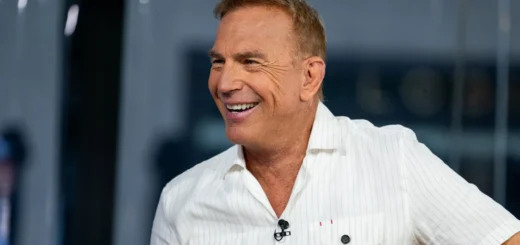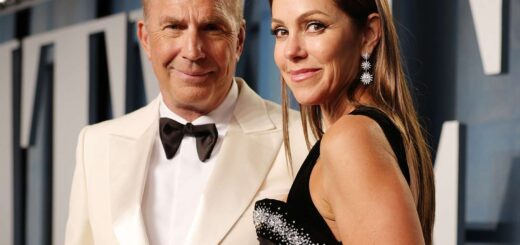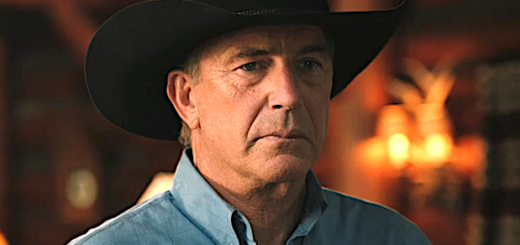Kevin Costner: “I Poured My Soul Into It”
Interview with Kevin Costner: “I Held On Because I Had To”
As the day of my interview with Kevin Costner drew near, I realized my excitement wasn’t just about meeting one of the greatest actors of our time—it was about talking to him about the project that’s closest to his heart. Horizon: An American Saga is not just a film series—it’s a dream Costner has nurtured since the 1980s. Now, as co-writer, producer, director, and lead actor, he’s finally bringing it to life.
We spoke about representation, identity, and the driving force behind it all: heart.
First off, congratulations on Horizon: An American Saga – Chapter 2. I honestly liked it even more than the first. I loved how it focused on the smaller moments, while we start seeing the characters’ deeper motivations. Their arcs are clearly unfolding in Chapters 3 and 4. How did you work with your cast on developing their characters? Was there an ongoing conversation with them?
We did the work before I hired them. That’s the reason they signed on—they connected with the writing. They saw the arc and how their characters evolved in the world we were creating. You know, sometimes actors sign on to films they don’t fully believe in, and they try to fix it while shooting. That’s not what happened here. We knew exactly what was going to happen in Chapter 3 and Chapter 4.
Chapters 1 and 2 unfolded exactly how they were meant to. And the cast has portrayed it all beautifully.
That’s something I really felt watching the film—the emotional evolution of each character. Ella Hunt’s storyline, for example, moved me deeply. It made me feel angry, upset, protective… Was there a scene during filming that hit you on a deeper emotional level?
Any time a woman is being victimized, it’s difficult. I tried to handle those scenes gracefully—you never actually see anything graphic. But the emotional weight is still there. It happens to her twice in the story, but it’s never shown explicitly.
That decision was powerful. It made those moments even more disturbing. I felt genuine anger watching it.
Yeah, and I wanted men watching to feel that too. That instinct of “Somebody has to do something.” But what you need to understand is—people heading west didn’t know each other. In the first film, if you look closely, they weren’t really making friends. They were isolated, some of them were strange, and when something bad started happening, nobody wanted to get involved.
One man tried to stand up for her in the first movie—but the others threatened him, and he backed off. He knew that if he got killed, his wife would lose her husband and his kids would lose their father.
Out West, people valued their independence. But at some point, there’s a tipping point. Those guys crossed it—and then they were gone. It could have happened earlier, but I chose not to make it happen sooner.
To me, the women in this story are the true protagonists—the ones hiding, rebuilding, surviving. That’s rare in a Western. Where did you find the inspiration for them? Did you do a lot of research?
I didn’t need research to know that women were always at the center of it. But I did read journals—first-hand accounts. What they went through on a daily basis… it was incredibly hard. I wanted to highlight the simple things and show how deeply they mattered.
There’s a moment where a blindfolded woman sees the little house her partner built. It’s nothing—just a shack in the dirt—but she loves it. It was built with care, for her. Every woman in the world can feel what she feels in that moment. That’s what I wanted—something small that carried real meaning.
Yes, those details made the film so compelling. Honestly, I could’ve watched for another hour. I’m already counting the days for Chapters 3 and 4. At the beginning of the film, we hear someone say, “God couldn’t find this place with a map.” What did that line mean to you? Why do you think Horizon feels abandoned by God—or by fate?
What he’s really saying is: “We’re on our own.” The character is clinging to some outdated, Victorian idea of love and duty—waiting for someone who never truly cared about him. Meanwhile, there’s this other woman right in front of him.
So when that Mexican character says, “God couldn’t find this place with a map,” what he really means is, “Wake up!” I just gave him more poetic words. [laughs]
Being both director and actor must mean spending a lot of time with yourself, in your own head—exploring all your sides. What did Horizon teach you about yourself?
That I can hold on. I have to finish. I have to get across the river, through the desert—I have to make it. There’s no choice. I have to hold on, because if I don’t, no one else will.


